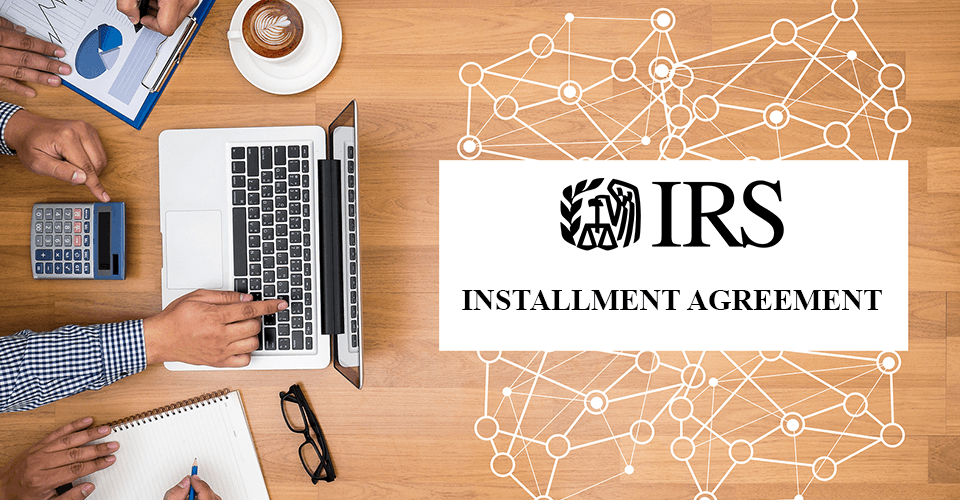PARTIAL PAYMENT INSTALLMENT AGREEMENT

Don’t qualify for an Offer in Compromise (OIC)? Consider a Partial Payment Installment Agreement (PPIA). The IRS implemented the PPIA option on January 17, 2005, for taxpayers with outstanding federal tax liabilities over $10,000, including interest and penalties. It allows the IRS to enter into installment agreements that will result in full or partial payments of tax liabilities. Prior to this legislation, taxpayers who could not fully pay outstanding liabilities could only enter an agreement that resulted in a full payment (assuming they did not qualify for an OIC).
A PPIA is less time consuming and easier to apply for than an OIC. It’s also easier to qualify for a PPIA than an OIC and requires no lump sum payment at the beginning. Under PPIA, the taxpayer makes regular monthly payments to the IRS, but the payments do not pay off the tax debt in full. After the terms of the installment agreement are fulfilled, the remainder of the tax debts are forgiven. The closer you are to the end of the Service’s 10 year statutory collection period, the better your chances are of paying less than the full amount owed.
Before running to fill out Form 9465, keep in mind that the IRS reviews your financial picture every two (2) years. If you get a raise, inherit money or win the lottery, the IRS will take that into account when determining how much you can pay each month. The IRS also takes your assets into consideration to determine their liquidation value, if any. You will also need to stay current with your monthly payments or the PPIA may be revoked. Finally, you will need to file all federal returns and pay all your federal taxes on time for the duration of the PPIA or the IRS may rescind the agreement.
You should work with a legal tax professional to ensure all forms are properly completed, documentation is timely submitted and negotiations with the IRS are handled prudently. Generally, applying for a PPIA requires the following:
- Find out how much is owed in unpaid taxes including tax, penalties and interest
- Fill out Form 9465
- Fill out Form 433-A Collection Information Statement
- Attach three months of backup documentation for income and expenses
- Write a letter asking for PPIA
- Submit the letter plus the above forms to the IRS agent handling your case
The IRS should respond in 30 days, but that does not mean you will have a final answer in 30 days. The IRS may request additional documentation or more time to analyze your request. To be sure, PPIA does not offer the same closure associated with an OIC, which typically concludes within 24 months. But the OIC requirements are very stringent and most taxpayers will not qualify. PPIA allows you the ability to repay a portion of what you owe without forcing you to subsist on Ramen Noodles for the next few years.
Please note that before the IRS can approve a PPIA, you need to have filed all your tax returns and be current on income tax withholding or estimated taxes. You must also have filed back taxes before requesting an installment agreement.
If you have assets with substantial value, such as a house or vehicle, keep the following in mind. A PPIA can be approved if you have equity in those asset, but do not sell or cannot borrow against it for the following reasons:
- The equity is insufficient to allow creditors to loan funds
- The loan payment would exceed your disposable income and disqualify you for a loan ( IRS requires you to make a good faith effort to obtain a loan using normal business standards)
- Your spouse, who owes no tax liability, refuses to pursue a loan as part owner of the asset
- Your asset is unmarketable due to decline in value
- Your asset generates income required to finance PPIA. For example, a rental property.
- Sale, loans on or use of asset would create a hardship (ie. pay basic living expenses, jeopardize medical condition, you are elderly, in poor health or subsists on Social Security)
As with an OIC, the IRS evaluates your Reasonable Collection Potential, in essence, what it can reasonably and potentially expect to collect from attachment of wages, income or seizure of assets. If Reasonable Collection Potential exceeds your tax liability, you are not eligible for PPIA.
Unlike an Offer in Compromise,taxpayers granted a PPIA are subject to a financial review every two (2) years. As a result of the review, the amount of the installment can increase or the agreement could be terminated if the taxpayer’s financial condition improves enough.



